By Ruslan Kurbanov
IUMS Member – Russia
Bashkirs are half-nomadic Turkic Sunni Muslim people living in today’s Russia Federation with strong urge towards independence. They inhabit their own Republic of Bashkortostan extending on both sides of the Ural Mountains, on the place where Europe meets Asia.
Bashkortostan is Russia’s forth nation in terms of population, with strong national identity and very tragic history of fighting for freedom. However, through keeping good relations with Russia, the modern generation of Bashkirs tends to prefer economic stability over the complete independence of the Republic of Bashkortostan.
Also Read: Nuclear Technology: Harm and Benefit from the Qur’anic Perspective
Early records on the Bashkirs are found in medieval works by Sallam Tardzheman (9th century) and Ahmad Ibn Fadlan (10th century). The 10th century Ibn Rustah observed that Bashkirs were independent people that occupied the territories on both sides of the Ural Mountain.
Arabic chronicler Ibn Fadlan visited these lands as a mission member from the Caliph of Baghdad in 922. Before Islam was spread among Bashkirs in the tenth century, Ibn Fadlan described them as nature worshipers, identifying their deities as various forces of nature, birds, and animals.
From 1220 to 1234, Bashkirs continuously fought the Mongols and were able to hold back their expansion to the West. By 1236, lands of Bashkortostan were incorporated into the empire of Genghis Khan. The nation of Bashkortostan then spent the 13th and 14th centuries as part of the Golden Horde, which is the north-western sector of the Mongol Empire. After the breakup of the Mongol Empire, the Bashkirs were separated between Nogay horde and Kazan and Siberian khanates, founded in the 15th century.
In 1552 the area passed into the hands of the Russians, who founded there Ufa town in 1574 and thereafter began colonization of the area, dispossessing the Bashkirs. Russian colonization led to many Bashkir uprisings, which were severely repressed. The Bashkirs rebelled in 1645, 1662-64, 1675–83, and 1705-11.
Also Read: Gaza Cries Out, the World Stays Silent: A Wounded Humanity
After each rebellion Russian government had to guarantee Bashkirs wider rights. Thus after the rebellion of 1662-1664, the government confirmed Bashkirs’ rights on their lands, and during the 1681-1684 rebellion their right to profess Islam freely.
Bashkiri Breakdown
The rebellion of 1735-1740 turned to be the most devastating for Bashkirs. By the estimates of American historian Alton S. Donnelly, one in four Bashkirs died in this rebellion.
As this was compiled from army reports it excludes losses from irregular raiding, hunger, disease and cold. All this was from an estimated Bashkir population of 100,000. But even this didn’t mean the end of Bashkirs’ fighting for freedom. The next rebellion broke out in 1755-1756. Its reasons were rumors about new suppressions of Islam by Russian government.
Also Read: Indo Defence Expo and Forum; Sharing Responsibility of Humankind and Environment
Later, in 1774, the Bashkirs, under the leadership of Salavat Yulayev, supported Pugachev’s Rebellion. In 1786, the Bashkirs achieved tax-free status; and in 1798 Russia formed an irregular Bashkir army from among them. Residual land ownership disputes continued.
The fact is that Russian Imperial goal of expansion into Central Asia was delayed to deal with the Bashkir problem. Later, as a result of this confronting with the Russian government, Bashkiria was completely pacified. But the cost was very high.
Soviet and Post-Soviet
After the Russian Socialist Revolution, the Bashkir Autonomous Republic was set up in 1919, among the first such republics in the Soviet Union. During World War II, Bashkiria became one of the major regions of the Soviet Union to accommodate plants, factories, and great masses of people evacuated from Western Russia, as well as providing the country with weaponry, fuel, and foodstuffs.
Also Read: Safiya Saeed: From Somali Migrant to First Hijab-Wearing Mayor of Sheffield
After the end of WWII, Bashkiria’s industry became a solid base for the further economic growth of all European outlying territories of Russia with a good number of industries that were further developed there, such as mining, machine construction, and oil-refining.
On October 11, 1990 the Supreme Soviet of the Republic adopted the Declaration on State Sovereignty of the Bashkir Republic. In the end of 1991 and begin of 1992 and immediately after the collapse of the USSR, the National movements of Tatarstan, Bashkiria, and Yakutia held their Congresses and claimed withdrawal from Russian Federation.
All this pushed Russian government to conclude faster the Federation Treaty in March of 1992 between Moscow and national republics of Russia. By this treaty Russia turned to become a federation of independent national states with giving all rights on their recourses to the hands of title nations (Bashkirs in Bashkiria, Tatars in Tatarstan, Yakuts in Yakutia, and so on). This treaty was signed by all republics, expect Tatarstan and Chechnya.
Idea of Independence
Also Read: Why Food Safety is Essential During Hajj Services?
Some leaders of Bashkir youth during a long time supported the idea of widening Bashkiri autonomy from Russia. Some of them were high-ranking enough. For example, Ilshat Sultanov, the ex-Vice Chairman of Bashkir Government’s Administration, and Artur Idelbaev, the ex-Vice Chairman of Department for Press and informal leader of Bashkir Youth Union.
This Bashkir Youth Union, for instance, after collapse of Soviet Union in 1991 supported withdrawal Bashkiria from Russian Federation and became famous by such actions like plucking Russian flags from governmental buildings. In previous years many public opinion polls showed that idea of independence of Bashkiria from Russia had quite a lot of supporters. But a great number of those supporters viewed that independence in a different way other than a complete separation from Russia and establishing an independent state.
They viewed it as some kind of economical sovereignty. The respondents often stated that it is better to rule the Republic from Ufa (the capital of Bashkiria) but not from Moscow. Some of them argued that economical sovereignty will be good choice for the Republic because of high developed industry of Bashkiria and rich energy resources of oil and gas.
Just a month ago in October, 2012, demonstrators in Ufa again claimed the independence of Bashkiria. The organization behind the action was Bashkiri human rights movement “Kuk Bure” (or Heavenly Wolves in the Bashkiri language); the main slogan of the demonstration was “Bashkiria has no future without sovereignty.”
Also Read: Indonesia Sign Language Mushaf Qur’an; A Sustainable Gift in Celebrating Pancasila Birthday
Evidently the idea of independence from Moscow is still alive within the Bashkiri society. But even that demonstration with 50 participants showed that this idea does not have a big number of supports.
However, other factors cannot be ruled out as reasons behind the slim support for independence, such as the security measures imposed by the government along with observed pacifism on the part of the population. All the more, currently Bashkirs make up only 30 percent of the population in their own republic. (P007/RO6)
Mi’raj Islamic News Agency (MINA)
Also Read: Leila Khaled, The Icon of Palestinian Women’s Resistance





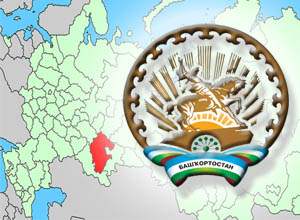


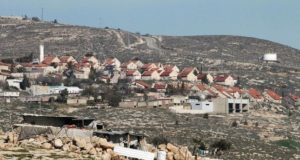
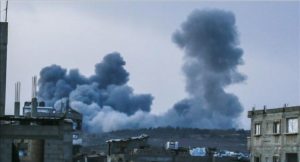

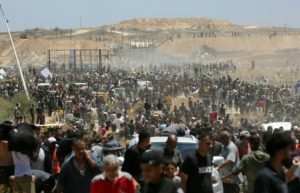
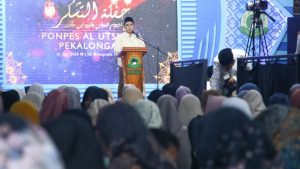
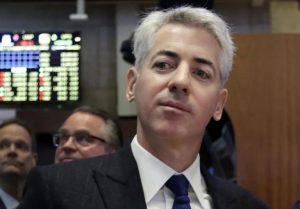
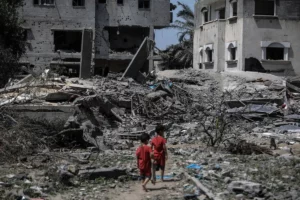
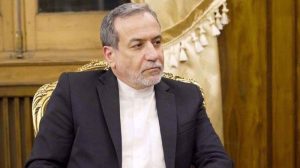
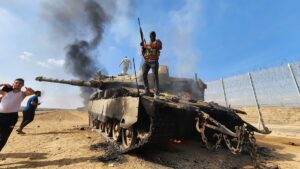

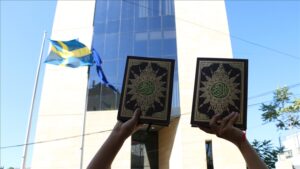

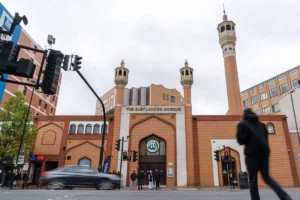




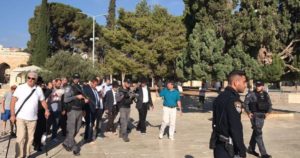

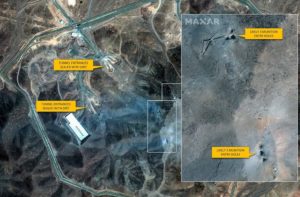
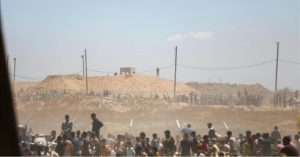
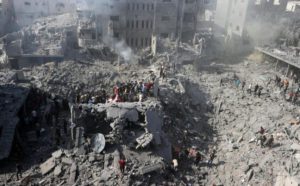






 Mina Indonesia
Mina Indonesia Mina Arabic
Mina Arabic